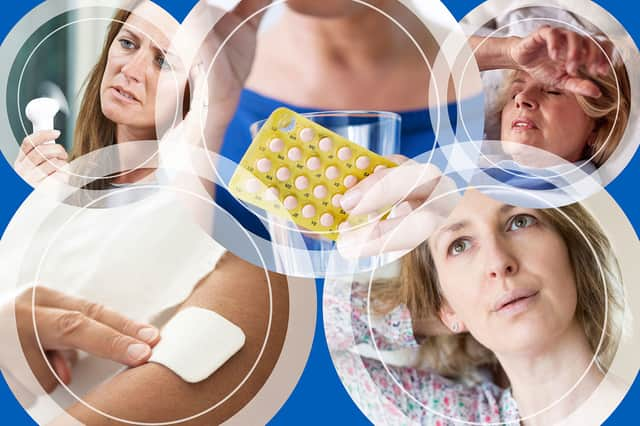What is perimenopause? Symptoms, is it the same as menopause - is there treatment for it


Nicola Bulley's family has demanded an end to the "speculation and rumours" regarding her personal life, making their plea after Lancashire Police came under fire for saying the mother-of-two had previously experienced “some significant issues with alcohol” that had recently resurfaced.
In response to information about Bulley's private life being revealed in a press conference, the Independent Office for Police Conduct (IOPC) said it had made contact with the force to “determine if a referral to the IOPC may be required.”
Advertisement
Hide AdAdvertisement
Hide AdIn a statement issued through the force on Thursday (16 February), Bulley’s family said: “We, as a family, believe that the public focus has become distracted from finding Nikki, and more about speculation and rumours into her and Paul’s private life.”
After police revealed her issues with alcohol “brought on by her ongoing struggles with the menopause”, the force was strongly condemned by MPs and campaign groups. Bulley’s family said significant side effects of the perimenopause she suffered included brain fog.
Their statement continued: “Due to the perimenopause Nikki suffered with significant side effects such as brain fog, restless sleep and was taking HRT to help but this was giving her intense headaches which caused Nikki to stop taking the HRT thinking that may have helped her but only ended up causing this crisis.”
But what exactly is the permenopause? What are its symptoms and signs, and what can you do to alleviate them if you are suffering yourself? Here is everything you need to know.
What is the perimenopause?
Advertisement
Hide AdAdvertisement
Hide AdThe time between the onset of menopausal symptoms until after a woman has experienced her last period is known as the perimenopause. It usually starts in your mid-40s, but it can start earlier.
Before ceasing altogether, periods typically start to get less frequent over a few months or years, though some women may experience a sudden stop.
Periods can also grow more erratic in frequency, and become heavier or lighter. Since perimenopause is usually a gradual transition, no one test or sign is enough to determine if you've entered the process.
What are the signs and symptoms?
According to the NHS website, menopause and perimenopause symptoms can have a big impact on daily life, including relationships, social life, family life and work.
Advertisement
Hide AdAdvertisement
Hide AdSymptoms of perimenopause usually start months or years before periods stop and can include changes to mental health such as low mood, anxiety, mood swings, low self-esteem, problems with memory, and issues with concentration (brain fog).
Common physical symptoms of both the menopause and perimenopause include hot flushes, difficulty sleeping, heart palpitations, and headaches, or migraines that are worse than usual. Other physical problems can include muscle aches and joint pains, weight gain, skin changes including dry and itchy skin, lower sex drive and vaginal dryness, and pain during sex.
What is the treatment?
Perimenopause symptoms can be lessened by maintaining a healthy diet, getting regular exercise and taking care of your mental health.
Hormone replacement therapy (HRT), which replenishes reduced hormone levels, is the primary medical treatment for perimenopause symptoms, though there are alternative treatments available if you cannot, or choose not to, have HRT.
Advertisement
Hide AdAdvertisement
Hide AdHRT involves taking oestrogen to elevate the body’s levels of the hormone. It is often combined with progesterone. There are different types and doses of HRT, including tablets, sprays, implants and patches.
HRT is taken by millions of women worldwide as a way of managing symptoms of the perimenopause and menopause but it does not work well for everybody. For instance, Nicola Bulley’s family said she stopped taking HRT due to suffering intense headaches.
According to the NHS, the risks of HRT are small and usually outweighed by the benefits. However, HRT may worsen headaches in some people and GPs may suggest an oestrogen skin patch is used. According to the Migraine Trust, some women find HRT makes their migraine worse. It recommends people speak to their doctor if this happens.
For more information on the treatment of menopause and perimenopause symptoms, head to the NHS’ website.
Comment Guidelines
National World encourages reader discussion on our stories. User feedback, insights and back-and-forth exchanges add a rich layer of context to reporting. Please review our Community Guidelines before commenting.
